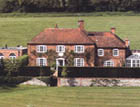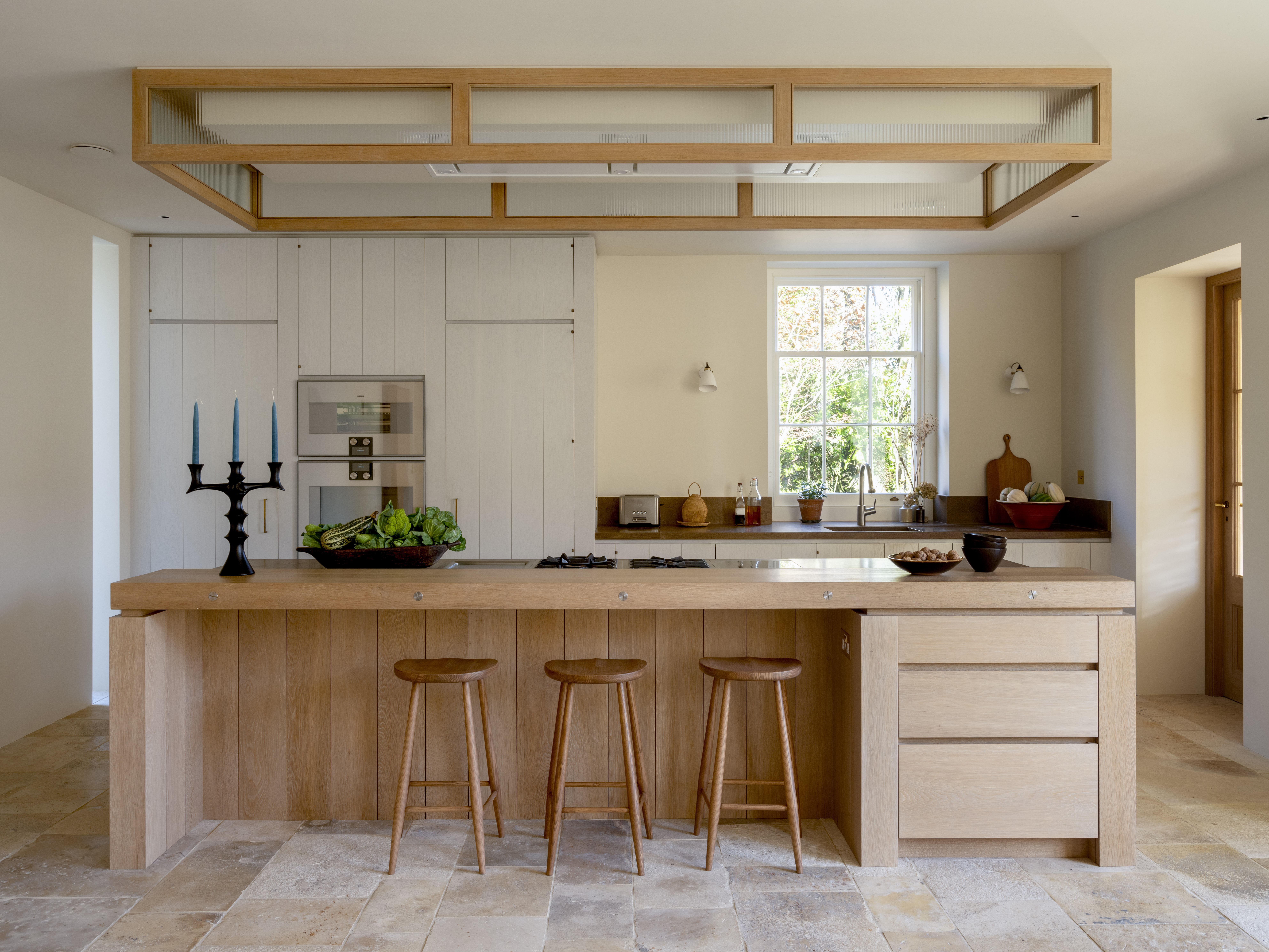The Sky's the Limit
The bidding is bound to be intense on these classic country estates


When the 1120-acre Forest Farm estate near King?s Somborne, Hampshire was launched on the market just over a month ago (Country Life, April 27, 2006), James Laing of Strutt & Parker predicted that the estate would sell quickly, and for ?much more? than the £6 million guide price. And so it has, following a rapid exchange of fire between half a dozen enthusiastic bidders. Now the sale of the 856-acre Nutley Manor estate at Preston Candover, in the heart of Hampshire?s ?banker belt?, at a guide price of excess £15m, has Knight Frank (020?7629 8171) hoping that a few of those unlucky under-bidders will again put their hats in the ring.
The price differential between these historic Hampshire estates is readily explained by the fact that Forest Farm currently lacks an impressive principal house (although it has planning consent to build one), but Nutley has an elegant, Grade II-listed, manor house impeccably restored following a fire in 2003. Nutley was one of six manors at Preston Candover at the time of Domesday, although the present house was built in 1814. It has five reception rooms, a sumptuous master suite, five further bedrooms and four further bath/shower rooms, sits neatly in the middle of its land, and comes with every amenity known to modern sporting man.
Like a thoroughbred sheltering from a squall at nearby Prestbury Park racecourse, Dixton Manor stands with its back to the steep wooded slope of Dixton Hill, looking south-west across the vast sweep of the Gloucestershire Vale. Two articles by Arthur Oswald (Country Life, April 26 and May 3, 1946) trace the history of the ancient Cotswold manor rebuilt by the Hugford family in 1555, of which only the porch and the many-gabled west front survive.
Externally, Dixton Manor, listed Grade II*, has changed little since Sir Charles Hambro, grandfather of the present vendor, bought it in 1945. Yet the somewhat austere façade belies the warmth of the interior, which three generations of Hambros have transformed into a pleasantly unpretentious, nine-bedroom, family home. Having moved to Dixton from his nearby Dumbleton estate on his father?s death four years ago, the Hon Charles Hambro and his wife, Nicole, have injected new life into the house, its quintessentially English gardens and its well-timbered, 442-acre farming estate. Now the time has come for the family to return to Dumbleton, and estate managers Fisher German (01386 881214) are inviting ?substantial offers? for Dixton Manor as a whole, or in up to five lots.
The Poole Hall estate near Nantwich, Cheshire, is another to be mentioned in Domesday, although the first record of a house on the site was in 1622. In 1812, having inherited the estate from his mother, Elizabeth Elcocke, William Massey demolished the original house, replacing it with the present hall, designed by the architect Lewis Wyatt.
Globe-trotting Tony Hill, Poole Hall?s present owner, bought the estate in 1989, since when he has pursued a policy of ?conservative repair?. There is a certain Bohemian charm about the Grade II*-listed house, with its wonderfully-faded Regency rooms, staircase hall, nine bedrooms and traditional ?below stairs? areas. Structurally, however, it is in good heart, as are the old-fashioned stable yard, outbuildings and cottages. Mr Hill will miss the good times he has enjoyed at Poole Hall, but now that he is to renew his French connections, he no longer needs an English country estate. Jackson-Stops & Staff (01625-540340) quote a guide price of ?excess £6m? for Poole Hall with its 180 acres of gardens, parkland and well-managed Cheshire farmland.
Across the Pennines in North Yorkshire, the Sinnington hunt breakfasts hosted by James and Mary Holt at Ravenswick, near Kirkbymoorside, have become legendary over the years. The house dates from 1740 when it was part of the then 186,000-acre Duncombe Park estate. In 1895, Harrison Holt, grand-father of the present owner and a founder of the British Oil and Cake Mills in Selby, bought Ravenswick, and rebuilt and extended the house to a design by Temple Moore, the mentor of Giles Gilbert Scott.
Sign up for the Country Life Newsletter
Exquisite houses, the beauty of Nature, and how to get the most from your life, straight to your inbox.
The present owners are the third generation of the family to live at Ravenswick which, with its grand reception rooms, 13 bedrooms and rambling staff quarters, is now much too large for their needs, so they plan to move to a smaller house elsewhere on their estate. And Blenkin & Co (01904 671672) are offering the house with 80 acres of formal gardens, farmland and woodland at a guide price of £2.5 to £3m.
This article first appeared in Country Life magazine on June 8, 2006.
Country Life is unlike any other magazine: the only glossy weekly on the newsstand and the only magazine that has been guest-edited by HRH The King not once, but twice. It is a celebration of modern rural life and all its diverse joys and pleasures — that was first published in Queen Victoria's Diamond Jubilee year. Our eclectic mixture of witty and informative content — from the most up-to-date property news and commentary and a coveted glimpse inside some of the UK's best houses and gardens, to gardening, the arts and interior design, written by experts in their field — still cannot be found in print or online, anywhere else.
-
 Designer's Room: A solid oak French kitchen that's been cleverly engineered to last
Designer's Room: A solid oak French kitchen that's been cleverly engineered to lastKitchen and joinery specialist Artichoke had several clever tricks to deal with the fact that natural wood expands and contracts.
By Amelia Thorpe
-
 Chocolate eggs, bunnies and the Resurrection: Country Life Quiz of the Day, April 18, 2025
Chocolate eggs, bunnies and the Resurrection: Country Life Quiz of the Day, April 18, 2025Friday's quiz is an Easter special.
By James Fisher